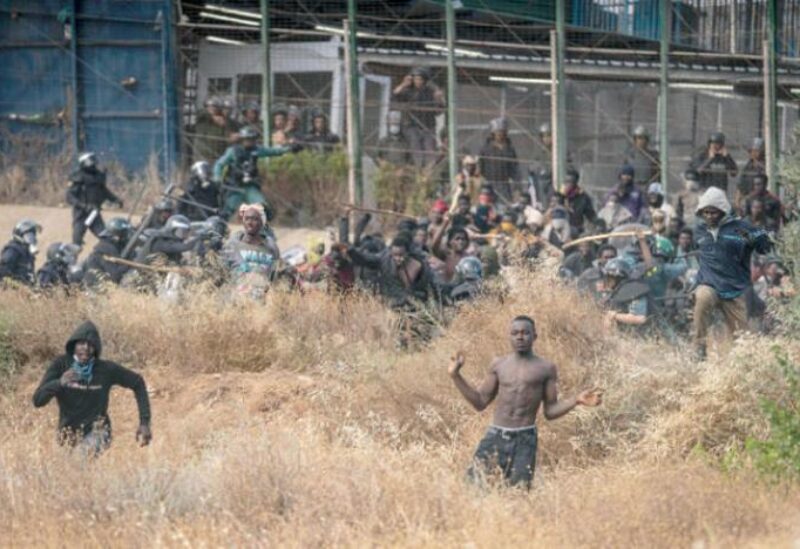
Melillia city
The United Nations Security Council held a closed-door session on Wednesday to discuss last week’s Melilla tragedy.
At least 23 migrants died trying to cross into the Spanish enclave, amid clashes with Moroccan and Spanish security forces, and 140 security personnel were injured.
About 2,000 migrants tried to storm a border post, in the first such mass incursion since Spain and Morocco mended diplomatic relations last month.
However, diplomats in New York said the 15-member Council failed to issue a unanimous statement.
The session was held upon Kenya’s request. It proposed issuing a statement to condemn the plight of African migrants on the Mediterranean coast and call on Morocco and Spain to carry out an immediate and impartial investigation into the tragedy.
But that text, which diplomats said has caused the discontent of the United States in particular, has not come to light due to the lack of consensus required for the Council to publish it.
The three members of the African Council, namely Ghana, Gabon and Kenya, were divided on the issue and failed to agree on a common position on how the Council should deal with the tragedy, a diplomatic source told AFP on condition of anonymity.
For his part, the Deputy Permanent Representative of Kenya to the UN, Michael Kiboino, declined to respond to a question on his country’s draft resolution, assuring reporters that discussions on the text are ongoing.
Diplomats said the session began with a briefing by UN Assistant Secretary-General for Human Rights Ilze Brands Kehris, which rarely happens in the UNSC .
Following the session, Kiboino released a statement stressing that African migrants “were brutalized by security forces while trying to enter” Melilla.
He affirmed that the session was aimed at calling for treating Africans “humanely” and underlining the importance of responding to “the security needs of the Africans who fled the wars and insecurity in their countries.”
In reference to the difference in the way the Council is addressing the Ukrainian crisis, Kiboino stressed that the “Security Council and its member states are deeply concerned about the fate of refugees from other conflicts.”
“We believe that Africans fleeing war and insecurity in their own countries deserve the same respect,” he added.